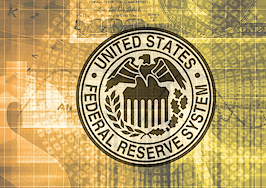In the old days, from the 19th century through the founding of the Fed in 1912, and modern times until about 2000, U.S. economic cycles were defined by the housing cycle. Big booms and busts they were, and if not quite predictable, certainly a recurrent pattern.
Booms led to over-building, lenders with no losses became lazy and eager to lend more and then rates rose and led to the inevitable bust. Then in the ensuing recessions, rates fell and housing was the first sector to awaken and recover.
We repeated that same pattern ten times just after 1945, although the Fed moderated each one, usually sawing the top off of the booms to soften each landing before they became dangerous.
We began to move out of pattern in the 2001-2002 recession — the first one without a housing bust. The technology and stock market busts were so powerful that they threatened deflation, so the Fed pushed down on rates and kept them there so housing would lead us out. And it did.
Then — apologies for dredging up the memory — the Fed and all other regulators failed to notice an epic episode of piracy on Wall Street that produced a mountain of bad credit. Only about half of the mountain was mortgages, but it was enough to produce a super-boom and a super-duper bust.
But that was a long time ago. The bust began in 2005; most foreclosures were worked off by 2012 and home prices have risen ever since, eerily so. On a national basis, home prices have risen close to 6 percent every year since, neither accelerating nor flattening. Not by accident, that 6 percent annual is just a hair bigger than the pre-inflation rate of income growth in cites. Cities are where the action is today.
In the last half-dozen years of stability, new home sales have been just short of 600,000 annually, the centerline of expansions going back 50 years. Thin numerically, given our much larger population today, but the thin supply has brought neither a price boom nor an oversupply.
Sales of existing homes have ticked along at 5.5 million annually, so steady the results are not worth reporting. And disparate sources have the same findings: The National Association of Realtors “pending sales” have been non-news bland. Same for the Mortgage Bankers Association reports of loan applications. Just this year, new mortgage lending has risen slightly above foreclosures of old loans, but the total outstanding is still $1 trillion below the Bubble total in 2007.
Why? Two forces without precedent outweigh everything else combined.
The first one is straightforward: post-Bubble regulatory changes have made it impossible to get a bad-loan boom going. People who should know better argue against Dodd-Frank and regulation in general. Dodd-Frank does have its weaknesses, but the U.S. supply of mortgage credit today is the highest quality in U.S. history. Don’t mess with that.
The second force is also without U.S. precedent. Sixty percent of U.S. counties now suffer out-migration by residents — nearly all rural, headed to cities where the technology critical mass burns so brightly.
Fifteen years ago the out-migration fraction was only 45 percent, and without the rural concentration. We are conditioned to migration west to suburbs and to the Sunbelt. Some of that will continue, but overwhelmed by the economic drive to get close to a city and its jobs and future.
In real estate terms, this migration means that we are switching from development of new land to the much slower and more expensive redevelopment of existing uses.
There you have it. No credit boom, no building boom, no cycle.
Lou Barnes is a mortgage broker based in Boulder, Colorado. He can be reached at lbarnes@pmglending.com.





